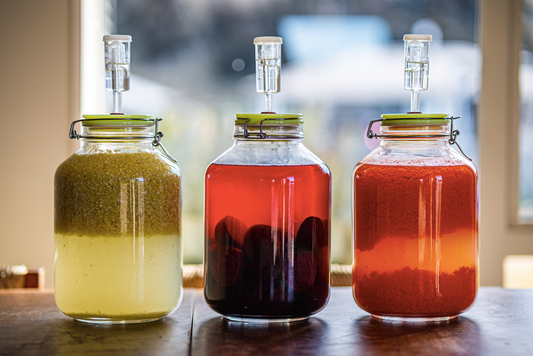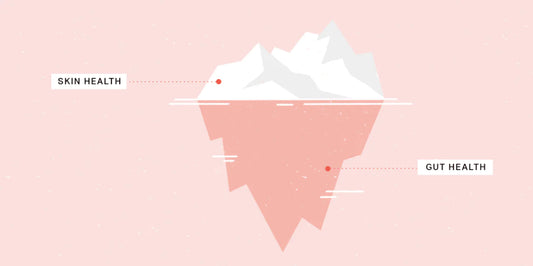The secret to longevity may lie in your gut health!
We are all going to age at some point but slowing this process down and ensuring you live long years in good quality health is key. While there are many factors involved here it’s becoming more apparent that your gut has a key role to play.
Your gut holds such an important role in all areas of your health. It’s where we digest food, house our immune system, fight off pathogens, assimilate nutrients, communicate to the brain, fight inflammation and so much more! One of the key pillars of our gut health is our microbiome, the 40 trillion microorganisms - bacteria, yeasts and fungi - that reside in our gut. We can think of this like a garden - it should be a healthy ecosystem rich in diversity and growth. It’s our microbiome that impacts how well our gut functions and therefore how well the rest of our body functions. When we nurture it well, we have better health overall.
Why do we need to give our gut particular attention with age?
As we age, changes begin in the body - including our gut health and how well this ecosystem functions. Many age-related ailments such as digestion capabilities, tooth decay, polypharmacy and a reduction in appetite can contribute to a decline in the microbiome and digestion. There is now more documented evidence of this in the research.

Neurodegeneration is a common concern as we age and there are limited successful ‘treatment’ options, particularly when the development of it is thought to start some 10-20 years before physical expression of these diseases. We know now from observational studies that those with dementia have a significant change in certain levels of bacteria. Dysbiosis (having an overgrowth of unfriendly bacteria) is thought to contribute to cognitive decline due to the role bacteria play in the production, transportation and function of neurotransmitters (brain chemicals)
A healthy and robust gut is going to contribute to the following health factors and therefore increase longevity:
-
Minimise the need for medications such as omeprazole
-
Strengthen the immune system to fight off infections
-
Minimise inflammation
-
Improve energy levels
-
Improved digestion and absorption of nutrients
-
Prevention of age related diseases such as heart disease and cognitive decline
-
Improved bone density
-
Better weight maintenance
-
Improved mental health due to the gut-brain communication
While prioritising what you eat is one of the best things you can do to improve the growth and diversity of your microbiome, we know that with age both appetite and palette can change - this often leads to a more bland and limited diet and therefore less microbial growth/diversity. Dental issues and a decrease in saliva can also lead to less fibre intake and it is the fibre that feeds our beneficial microbes.
This is where Clover Ferments can be particularly beneficial in mitigating some of these barriers. The tonics provide a bioavailable solution to support microbial growth and diversity and require no preparation, no chewing and only a small dose to be effective.

As a preventative measure and as a way to address any of the symptoms/concerns mentioned earlier I would recommend taking Clover Ferments daily alongside a whole foods diet with emphasis on the following things:
-
Eat the rainbow - include as many colours as possible in your diet
-
Avoid sugar which will feed the wrong kinds of bacteria within your gut
-
Avoid processed foods
-
Minimise alcohol intake to weekends and special occasions
-
Hydrate well with 2L of water daily
-
Include vegetables and fruit with every meal
Key takeaways:
-
Age related health conditions are associated with a drop in microbial diversity
-
Many of the changes that go along with ageing impact our fibre intake and therefore the quality of our microbiome
-
Using Clover Ferments is an easy way to improve your microbial diversity and overall gut health without having to munch through half a plate of vegetables and greens at every meal
Grace Mortimer

Grace Mortimer - Head Clinical Nutritionist
Pheno Nutrition
https://www.phenonutrition.com/
-
BSc Neuroscience
-
dipGrad Human Nutrition
-
HPN2 Clinical Nutrition




